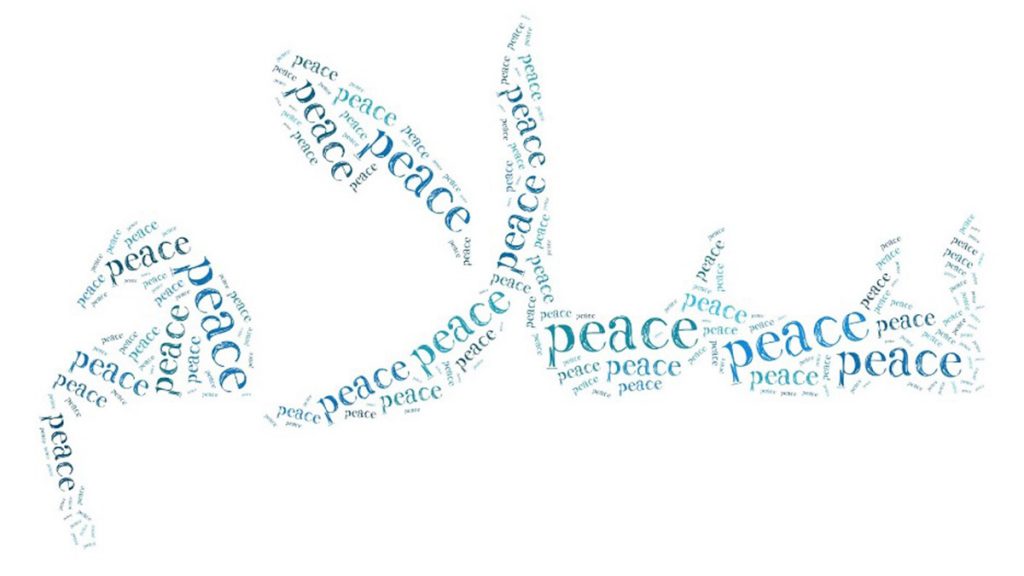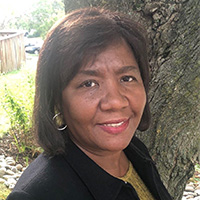
As a teacher and Christian, I always pray for each of my students and their families, as well as about every spoken word in my class. Teaching “Faith and Justice in the World” at a Catholic high school in Baltimore has sparked many questions from my students about peace and its relationship to faith and justice in the world. Ironically, my goal is to have my students discover peace as a common thread in all religions.
My hope is that this discovery will help them see that religions have more in common than they do differences. In addition, I pray that my students recognize these common values as contributors to the meaning of peace so they are equipped to participate in a peaceful dialogue with people of all religions.
As I began to introduce Islam and inquire about my students’ knowledge of the religion, I anticipated silent black boxes in my Zoom “classroom.” However, I was pleasantly surprised to see engaged students and hear many questions—from the global to the local—pertaining to peace and the Islamic faith:
- What is peace to Muslims?
- If Islam represents peace, why is there so much violence in countries that have large numbers of Muslims?
- How does Islam represent peace when Muslims caused violence in our country?
- Why does God allow violence in my neighborhood by Christians and Muslims alike?
These were just a few of the questions asked by my very curious and concerned students who unfortunately hear about violence regularly. As I began to answer these questions during my lesson, I realized my need to seek and clarify the true meaning of peace for Muslims so that I can learn for myself and share with my students, also.
After my classes, I eagerly reviewed the many questions and comments in the chat box. To my surprise, many of my students were connecting Islam solely to the events of “9/11.” They saw the two—the religion and the event—as one. My students used the details of that tragic day to explain why Islam was not a peaceful religion. At the moment, I decided to encourage my students to join in my search to understand and explain why Islam is considered a peaceful religion. The conversations that followed shared many aspects of Islam representing peace.
Participating in the ICJS Teachers Fellowship this year has given me the opportunity to learn more about Islam so that I can answer my students’ questions with more clarity. More importantly, it has allowed me to discover and even envy the true peace that Islam represents.
In addition, I have developed an even greater respect for Islam as a result of my encounters with ICJS Muslim Scholar Zeyneb Sayilgan. Each encounter that I have had with Zeyneb—beginning with our first meeting in which she helped me prepare my presentation on Islam—has sparked my interest to learn more about her religion. Her peaceful demeanor and love for Islam is demonstrated when she shares every aspect of her faith. When Zeyneb speaks about Islam, including areas that are not perfect, she does so in a realm of confidence and genuine peace. In addition, she connects Islam to other religions in a seamless and peaceful manner. Zeyneb’s presence and her presentations have allowed me to discover holy envy while simply seeking answers to questions that my students asked me about Islam.
 Tavia Yarborough is a Theology Teacher and Department Chairperson at Cristo Rey Jesuit High School. Yarborough was a member of the 2020-21 ICJS Teachers Fellowship.
Tavia Yarborough is a Theology Teacher and Department Chairperson at Cristo Rey Jesuit High School. Yarborough was a member of the 2020-21 ICJS Teachers Fellowship.
Opinions expressed in blog posts by the ICJS Teacher Fellows are solely the author’s. ICJS welcomes a diversity of opinions and perspectives.